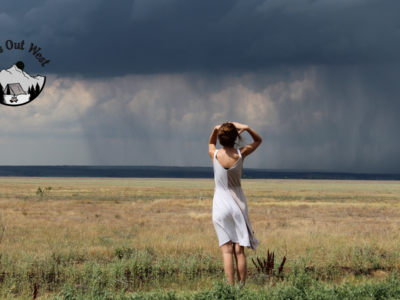To say we are living in trying times would be an understatement. It’s easy enough to be grateful when life is good, but in crisis is gratitude possible, let alone appropriate? To find out, we turned to Dr. Robert Emmons, who’s spent his lifetime studying the effects of gratitude in all sorts of circumstances, especially the tough ones. He says:
“…not only will a grateful attitude help—it is essential. In fact, it is precisely under crisis conditions when we have the most to gain by a grateful perspective on life. In the face of demoralization, gratitude has the power to energize. In the face of brokenness, gratitude has the power to heal. In the face of despair, gratitude has the power to bring hope. In other words, gratitude can help us cope with hard times.”
Does that mean we have to be grateful for the bad things? Last fall I interviewed Brittany Comins, who at age 27 lost her husband Brian unexpectedly in their first year of marriage. She bravely documented her journey through grief to a deeper sense of faith as she did what she and Brian loved to do together — she went hiking. And she didn’t just climb any old summit. She hiked the entire 2190 miles of the Appalachian Trail, alone.
On the trail, she had plenty of time to feel sorry for herself, but instead, she leaned into gratitude and over time, her suffering was transformed into strength. Brittany’s perspective on gratitude is informed by crisis and transformed by Christ: “Be thankful in all circumstances; for this is God’s will for you in Christ Jesus.” Her reading of 1 Thessalonians 5:18 is God asking us to be thankful in — during, throughout — not for all circumstances, not for the fact that she lost her husband, but in the midst of the loss.
For Christians, that’s a simple mandate. And it’s no surprise that modern research backs it up.
“Crisis can make us more grateful—but research says gratitude also helps us cope with crisis. Consciously cultivating an attitude of gratitude builds up a sort of psychological immune system that can cushion us when we fall,” says Dr. Emmons.
Now this doesn’t come easy, but what we see in 1 Thessalonians is the important distinction between feeling grateful and being grateful. “We don’t have total control over our emotions. We cannot easily will ourselves to feel grateful, less depressed, or happy,” explains Dr. Emmons. “Feelings follow from the way we look at the world, thoughts we have about the way things are, the way things should be, and the distance between these two points.” As difficult as it can be to weather those emotional storms, “there is scientific evidence that grateful people are more resilient to stress, whether minor everyday hassles or major personal upheavals. The contrast between suffering and redemption serves as the basis for one of my tips for practicing gratitude: remember the bad.”
Remembering the bad is not dwelling in despair, but reminding ourselves that we can do hard things too. We already have. Beyond this extreme moment, we each carry experiences of grief, trauma and loss with us throughout our lives. We are monuments of resilience, transformative works of art. And the way in which we bear witness to surviving these hard times is the way we find hope, for ourselves and in each other.
This week, let’s bring to mind a time when we didn’t think we’d make it through, or we couldn’t see the way out. And then look at how far we’ve come. Let’s wear our gratitude like a powerful veil of protection, a comforting blanket, a reminder of the strength we find in hope. And if you feel so compelled, share your story with someone. It could be just what they need to keep on going.
For songs to get you through, check out our Reasons to Hope playlist on Spotify and comment on our Instagram Live every Monday at 3pm ET with your song requests, and reasons to hope. We love hearing from you!
If you’re just now joining us in writing the Book of Hope, here’s all you need to get started.





 Copyright
2025
Root and Vine
Copyright
2025
Root and Vine